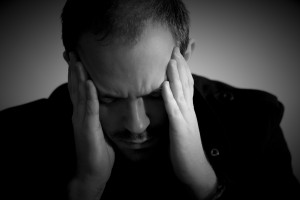Encountering depression?
Saturday, April 7th, 2012 4:34:24 by Fahad Zafar
Encountering depression?
Living with chronic pain should be enough of a burden for anybody. But pile on depression, one of the most common problems faced by people with chronic pain and that burden gets even heavier. Depression can magnify pain, and make it harder to cope. The good
news is that chronic pain and depression aren’t inseparable. Effective treatments can relieve depression and make chronic pain more tolerable.
Chronic Pain and Depression: A Terrible Twosome
If you have chronic pain and depression, you’ve got plenty of company. That’s because chronic pain and depression are common problems that often overlap. Depression is one of the most common psychological issues facing people who suffer from chronic pain,
and it often complicates the patient’s conditions and treatment. Consider these statistics:
According to the American Pain Foundation, about 32 million people in the U.S. report pain lasting longer than one year. From one-quarter to more than half of patients who complain of pain to their physicians are depressed. On average, 65% of depressed people
also complain of pain. People whose pain limits their independence are especially likely to get depressed.
Because depression in patients with chronic pain frequently goes undiagnosed, it often goes untreated. Pain symptoms and complaints take centre stage on most doctors’ visits. The result is depression, along with sleep disturbances, loss of appetite, lack
of energy, and decreased physical activity which may make pain much worse.
"Chronic pain and depression go hand in hand," says Steven Feinberg, MD, adjunct associate clinical professor at Stanford University School of Medicine. "You almost have to assume a person with chronic pain is depressed and begin there."
Chronic Pain and Depression: A Vicious Cycle
Pain provokes an emotional response in everyone. Anxiety, irritability, and agitation all these are normal feelings when we’re hurting. Normally, as pain subsides, so does the stressful response. But what if the pain doesn’t go away? Over time, the constantly
activated stress response can cause multiple problems associated with depression. Those problems can include:
- Chronic anxiety
- Confused thinking
- Fatigue
- Irritability
- Sleep disturbances
- Weight gain or loss
Some of the overlap between depression and chronic pain can be explained by biology. Depression and chronic pain share some of the same neurotransmitters — the chemical messengers traveling between nerves. They also share some of the same nerve pathways.
The impact of chronic pain on a person’s life overall also contributes to depression.
Once depression sets in, it magnifies the pain that is already there. "Depression adds a double whammy to chronic pain by reducing the ability to cope," says Beverly E. Thorn, professor of psychology at the University of Alabama and author of the book Cognitive
Therapy for Chronic Pain. Research has compared people with chronic pain and depression to those who only suffer chronic pain. Those with chronic pain and depression:
- Report more intense pain
- Feel less control of their lives
- Use more unhealthy coping strategies
Because chronic pain and depression are so intertwined, depression and chronic pain are often treated together. In fact, some treatments can improve both chronic pain and depression.
Tags: DepressionShort URL: https://www.newspakistan.pk/?p=18309

















